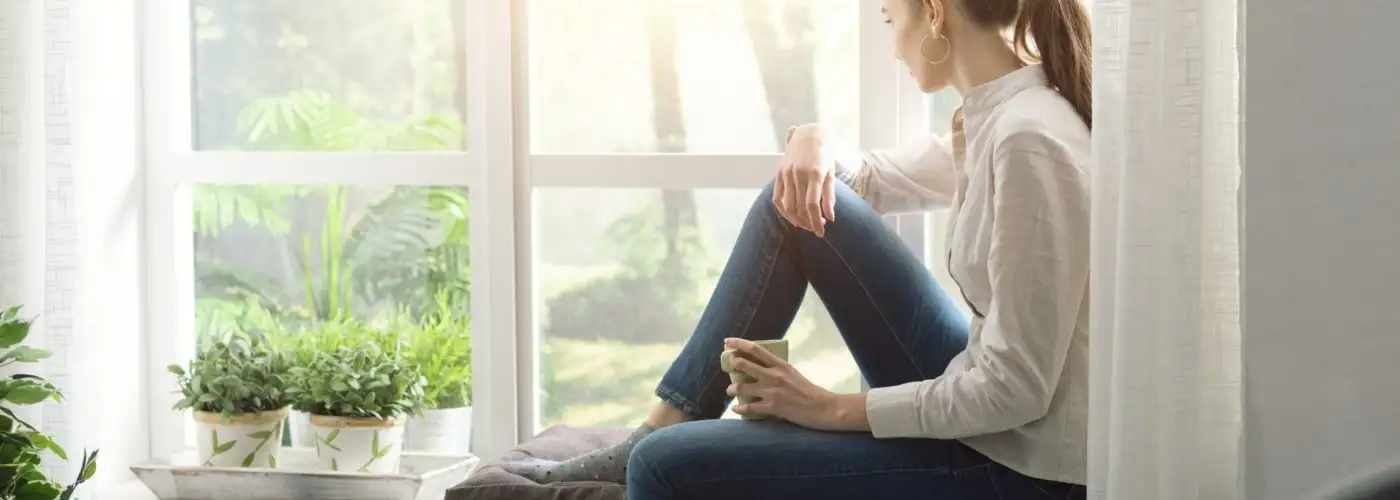Do you have to quarantine after flying? We answer this question and ones on disinfecting your phone, must-sanitize surfaces, and more in this month’s edition of our travel advice column.
Q. “Do you have to quarantine after flying, even if it’s a domestic trip?” – OG
A. The Centers for Disease Control and Protection (CDC) recommends the following after any type of travel (including a domestic flight): Obtain a viral COVID-19 test three to five days after your trip and self-quarantine for a full seven days, even if your test is negative. If you don’t get tested, quarantine for 10 days after travel.
Post-travel quarantine rule vary by state, so check your local state health department website to find out what the law is where you live. In New York, for example, anyone returning from out of state must fill out a Traveler Health Form and follow strict quarantine/testing guidelines or face a fine of up to $10,000.
Q. “What surfaces in a vacation rental/hotel do I absolutely need to disinfect? And what products should I use?” – ST
A. “Places where fingers are always pressing and pulling need frequent disinfection,” advises Dr. Julie Mckinney, PhD, R&D Director Equity, Claims and Compliance, Hygiene/Home at Reckitt Benckiser and contributor to the Lysol Germ-Cast app. According to Dr. Mckinney, “These areas – light switches, doorknobs, handles and sink faucets — are where germs can linger for hours or even days and then travel from surface to person, making them particularly important to disinfect while travelling or staying in hotel rooms.”
Use an EPA-registered disinfectant that’s designed for the surface you’re using it on (soft or hard), like these travel-sized Lysol Disinfecting Wipes or Lysol Disinfectant Spray To Go.
Don’t forget about any remotes (for televisions or climate control) that you’ll be using as well, as they are rarely cleaned between guests. My favorite hack is to use the complimentary shower cap provided at most hotels to cover the remote and create a barrier.
Q. “I’ve heard that tray tables are really gross, is that true? What should I use to clean them?” – AH
A. It’s true—the surface that you eat off of is oftentimes the dirtiest place on the plane, as it’s not always given a thorough scrub down in between passengers. Use a disinfectant wipe to clean the tray table and all other high-touch surfaces on your seat (like the headrest, armrest, and entertainment screen). Read our guide on properly disinfecting your airplane seat for more details.
Q. “How often should I disinfect my phone?” – RS
A. Did you make it through this article without checking your phone (or are you reading it on there)? It seems likely, since according to Dr. Mckinney “the average American checks their phone 52 times a day… that’s 52 opportunities for germs to spread! Given this, health experts suggest disinfecting your phone at least once a day as a preventative measure.”
Make sure your phone is unplugged, and then use a disinfecting wipe to clean your device. (Dr. Mckinney also recommends giving your keyboard, tablet, remote control, and gaming consoles a daily wipedown as well.)
Q. “Do blue light disinfectants/UV light products really work to kill germs?” – SS
A. UV disinfectants can work, but they have to be designed and used accurately in order to kill germs, and chemical disinfectants are generally more effective.
Avoid products that claim to use UVA and UVB lights to kill germs (they don’t work, according to studies), and look for UVC sanitizers which are the only type of UV light products proven to eliminate viruses.
Dr. Mckinney explains, “UV radiation has several potential applications, but unfortunately its germicidal effectiveness and use is heavily influenced by organic matter; wavelength; type of suspension; temperature; type of microorganism; and UV intensity, which is affected by distance and dirty tubes. So, although in principle UV has the ability to kill microorganisms, in practice it is difficult to implement and control for broad-spectrum disinfection.”
Click here to see our favorite U light sanitizing products for travel.
Have a travel question you need answered? Email cteel@smartertravel.com to potentially be featured in next month’s column.
You Might Also Like:
• US Issues Unusual Travel Warning for Popular Caribbean Country• 4 Common Travel Disasters and How to Prevent Them
• The Ultimate Toiletry Kit Packing List
• 6 Ways to Avoid Getting Sick After Flying
• 5 Hotel Nightmares That Could Happen to You
We hand-pick everything we recommend and select items through testing and reviews. Some products are sent to us free of charge with no incentive to offer a favorable review. We offer our unbiased opinions and do not accept compensation to review products. All items are in stock and prices are accurate at the time of publication. If you buy something through our links, we may earn a commission.
Related
Top Fares From Columbus, OH
Today's Top Travel Deals
Brought to you by ShermansTravel
Shop and Save with Country Inns...
Patricia Magaña
 Hotel & Lodging Deals
Hotel & Lodging Deals
$229 -- Chicago: Discounted Rates and...
Francesca Miele
 Hotel & Lodging Deals
$229+
Hotel & Lodging Deals
$229+
$188 -- Honolulu: Save on Oceanview...
Abigail Lamay
 Hotel & Lodging Deals
$188+
Hotel & Lodging Deals
$188+




